End the Habits Keeping You Stuck (without relying on willpower)
A practical webbook + workbook to break the loops—doomscrolling, binge-watching, junk snacking, porn—and replace them with habits you actually want.No shame. No pep talks. Just a clear plan that works.
Cancel anytime in 2 clicks • $29/month after • Permanent access to whole book after first payment
You know that vices are stealing your motivation... and yet you just can't stop.
You've connected the dots.You've come to see that your vices—YouTube, Reddit, TikTok—are crushing your motivation and energy levels.So it actually makes sense. Why you've been stuck. Why your energy's been so low. Why your intentions never seem to last.Maybe you felt clarity. Hope even.But then, somehow, you still find yourself reaching for your vices. Wasting time. Breaking promises. Burning away entire days, weeks, months.
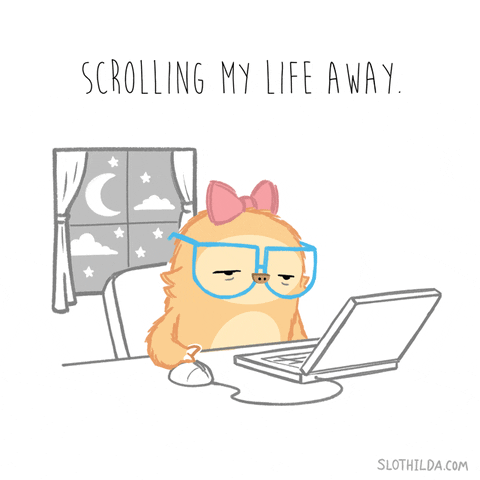
I know, because I lived it.
For years, I knew exactly how my vices were wrecking my motivation.I knew the science. I knew what I should do.And yet—every time—I’d end up back on my phone, back in the apps, back in the cycle.
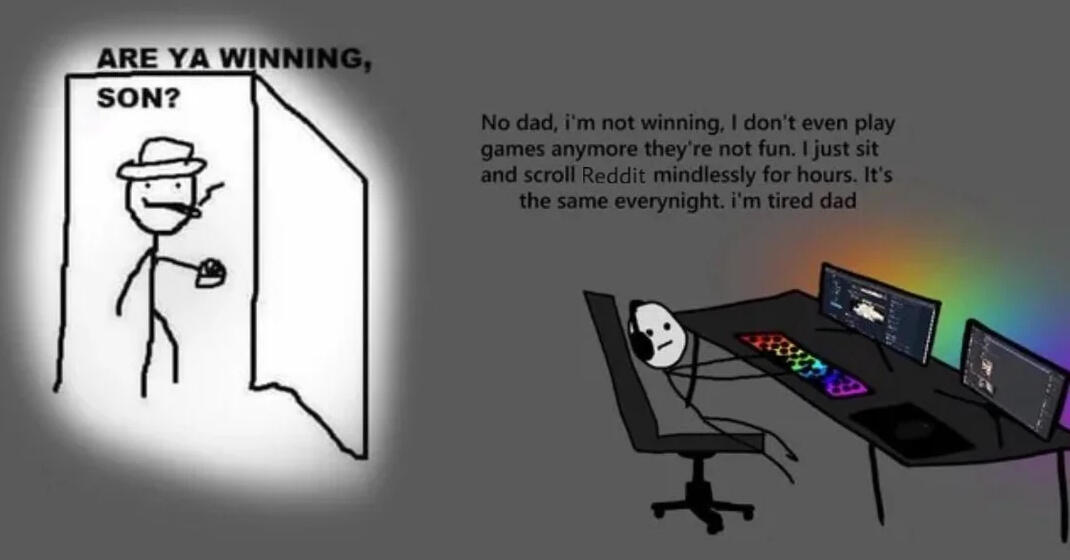
I just... I just had zero effing ability to stick with my commitments. And I couldn’t, for the life of me, figure out why (except that I was a pathetic failure, wasting away my life on garbage content I outgrew years ago).I mean, it should be simple, right?
Don’t do the thing that’s actively harming you.
Don’t do the thing that’s keeping you stuck, stressed, and depressed.
Don't do the thing you don't even really like anymore.
And yet… I’d do it anyway. Over and over and over.
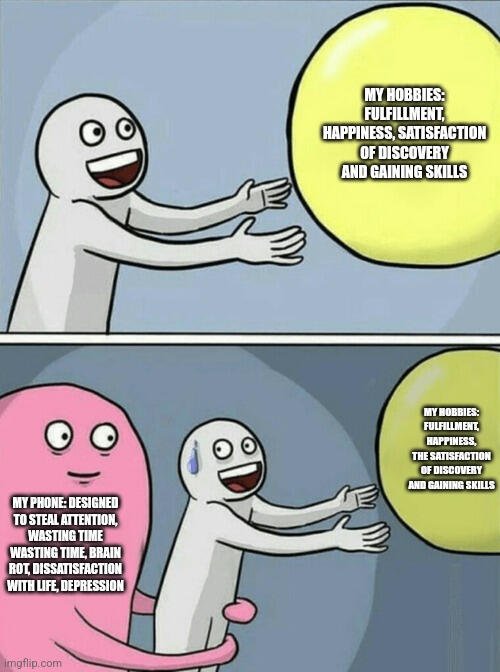
It made zero sense.For over a decade, I just kept repeating the same tired cycles. I was just so utterly stuck. And I hated myself for it all.It was a really dark time.
How I (finally) got better
In 2016, on another night of aimless Reddit browsing, I stumbled on a comment that caught my eye.Someone was claiming they had quit smoking… just by reading an old book.I was skeptical, of course. I mean, how could a bunch of words influence anyone into breaking any bad habit—let alone one of the worst ones out there?But the more I looked into it, the more hype and success stories I found. So, with nothing to lose, I decided to read it—mentally swapping every mention of “cigarettes” with “YouTube” or “Reddit.”
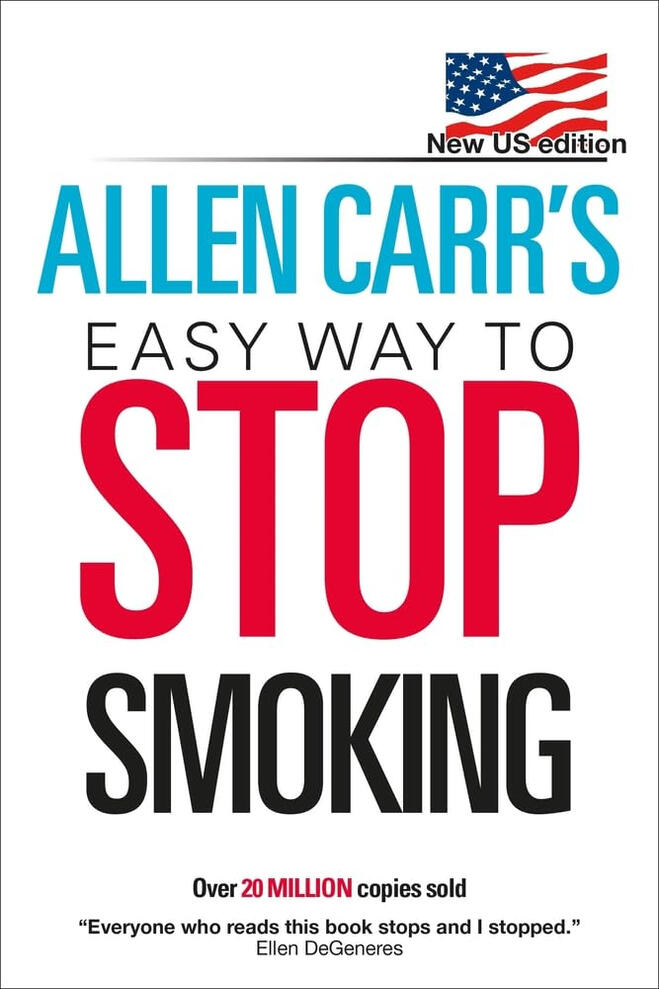
The Easy Way To Stop Smoking by Allen Carr gave me a whole new perspective on habits and addiction. It explained that quitting shouldn't be about mustering willpower to resist something you desperately want but can't have. No, the real move is to dismantle the desire itself—so that willpower, discipline, and self-control don’t even enter the equation.That’s the core argument: smoking is one big illusion, and once you see through it, there’s nothing you’re actually giving up by quitting. No benefits to part with, no sacrifice—unless you include the satisfaction of quenching a nicotine craving, which, as Carr writes, is like putting on tight shoes all day to enjoy the "relief" of taking them off.With this perspective, apparently quitting becomes effortless and automatic. "Easy" even.Interesting.

While it was an eye-opener, the book didn’t really change my habits.It did, however, give me a renewed sense of hope—and a new trail to follow.One thing was sure. My way out wasn’t going to be found by listening to all the self-help gurus and influencers—the folks who, I now realized, had never actually dealt with the kind of relentless problem I was facing.No. That book made me realize how crucial it is to learn from people who have. People who, like me, had spent years—decades even—stuck in a rut of compulsive, irrational, self-destructive behavior.I needed to learn from addicts.And that’s when I discovered a whole library of sobriety memoirs.
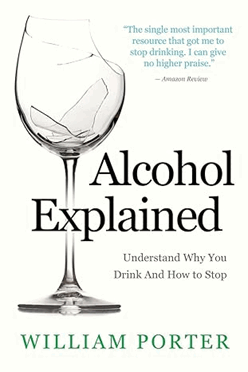
These were a lifeline.They were raw. Honest. Messy. Relatable in a way nothing else had been. (If you’re curious, I especially recommend We Are The Luckiest by Laura McKowen).For the first time ever, I felt understood.Sure, their stories were more extreme. But the emotional core? Identical.What struck me was that the advice was never about “optimizing your morning routine” or “chasing your goals by wanting it more.”It was about self-compassion. About forgiveness. About the power of self-love and acceptance.They were about finding your way to not doing the thing because you’d found a way to not want to do the thing. Because you found a better, more constructive way to deal with life's stresses and pains and disappointments.There was no talk of mastering willpower or summoning self-control. No instructions on getting disciplined or strong enough to power through a lifetime of urges and desires.That old mindset—the one I thought was the only way? I could finally let that shit go.Honestly, I think that’s really what I needed most. To just let go. To just accept myself and my life, as they were.To just... be.
The (original) Habit Reframe Method
During this period, I knew I had to do something with all I was learning. So I started piecing together my own self-improvement system from scratch.Like any prototype, it showed early promise. But then one part failed… which broke another… until the whole thing collapsed.Still—I kept at it. Every time it fell apart, I’d stop, reflect, adjust, and try again.It took years of this cycle—build, fail, learn, rebuild. But eventually, through countless iterations, I landed on something that actually worked. Something that finally got me consistent with my progress.Then in the fall of 2020—and on a total whim—I decided to write it all out and post it to Reddit.
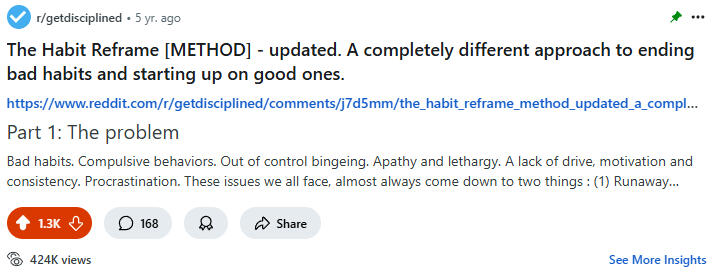
The response floored me. Over 1,000 upvotes and an outpouring of comments, awards, and thankful DMs.The method had clearly struck a nerve with people fighting the same battles I was—and feeling the same frustration with everything else out there.
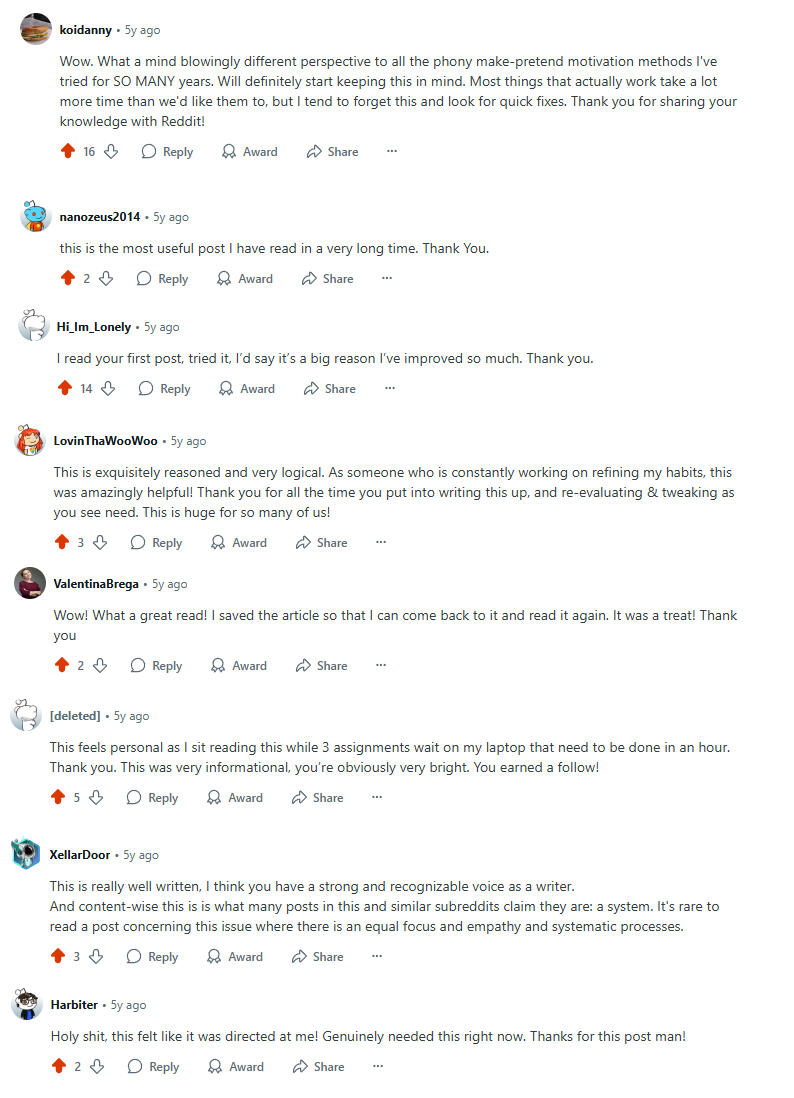
Energized, I kept going.Over the next few months, I shared more frameworks and reflections, each one deepening the conversation.Soon after, I launched a Substack. Then live webinars. Then group programs where I could support people directly.And through it all, I had the surreal experience of watching hundreds of people not just relate to these ideas…but actually apply them—and see real change in their lives.



Meanwhile, my own progress was accelerating.I was hitting milestones I once thought were out of reach. And with each breakthrough, it became clearer what it actually takes to escape the grip of tech addiction and chronic procrastination.So I set out to build something different.Something deeper.Something that didn’t just inspire clarity, as happened with the first version—but created real, lasting change.I took everything I’d learned—from my own hard-won struggles and from coaching hundreds of others—and distilled it into a step-by-step method that’s powerful, actionable, and most importantly… sustainable.And now, 5 years later, that method is here.
The (new) Habit Reframe Method
This thing is different.See, most self-improvement systems start with a faulty assumption: your problem is a discipline problem.So they post stuff like:
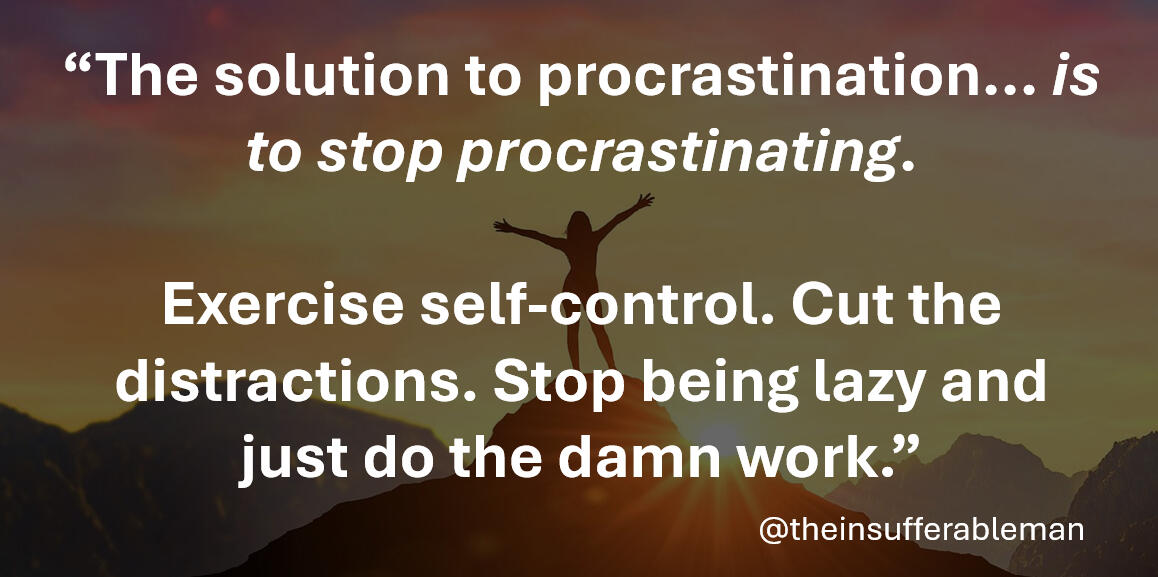
And every time I’d see that, I’d think: Okay… but how??It's like being told that the secret to losing weight is to... eat less food. Just use self-control to maintain a calorie deficit, and it'll happen.That’s perfectly logical advice… But also perfectly useless. It’s trivial. It doesn’t actually help.Now imagine flipping the script.What if, instead of seeking a way to force yourself to eat less, you found a way to make yourself want less food?What if you could just… feel less hungry, less often?In that case, willpower wouldn’t matter. Discipline wouldn’t matter.
You’d eat less—not because you forced it through self-control, but because the desire had changed.That’s what the Habit Reframe Method does.It’s not about coercing yourself to avoid vices through self-control. It’s about gradually changing what your brain wants to do. It's about:
Decreasing your desire for the things you know you shouldn’t be wasting time on.
Increasing your motivation for the things you know you want to be doing.
And once that shift happens—once those subconscious drivers are reoriented—
getting unstuck doesn’t require willpower anymore.It becomes natural. Even inevitable.You just get better.
What you get with the method
Alright. Let's break down exactly what's inside the program:
📕 Complete ebook plus all future updates and expansions.
The entire Habit Reframe Method in one place. Clear, easy to read, actionable, and designed to create momentum immediately.
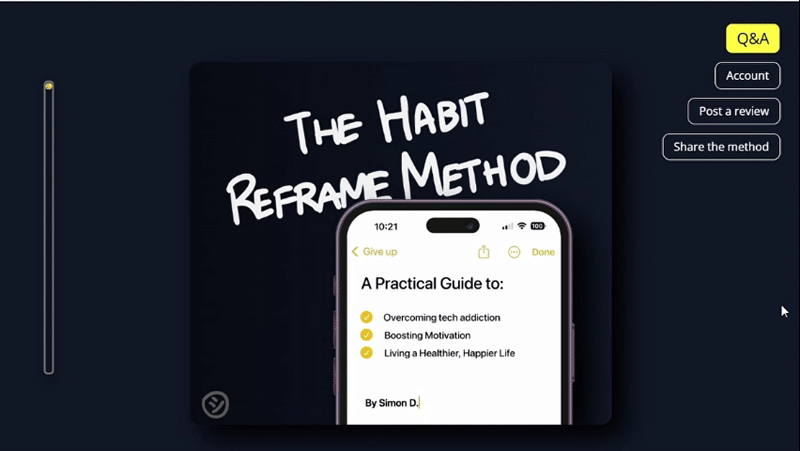
📝 Implementation workbook
Simple, focused exercises. No busywork. No long, annoying self-helpy assignments. Just what you need to hit the ground running as you apply the method to your daily life.
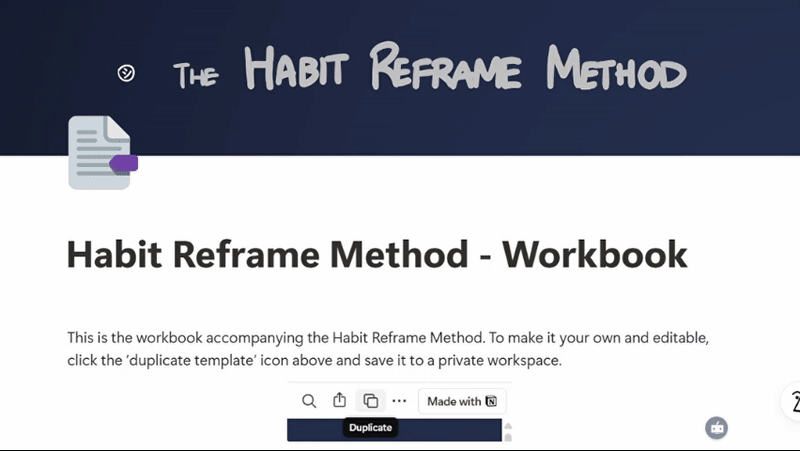
☕ Repeatable Morning routine
Custom-fit, systems-oriented tool to remind yourself of what matters—then set yourself up for a productive, priority-focused day.
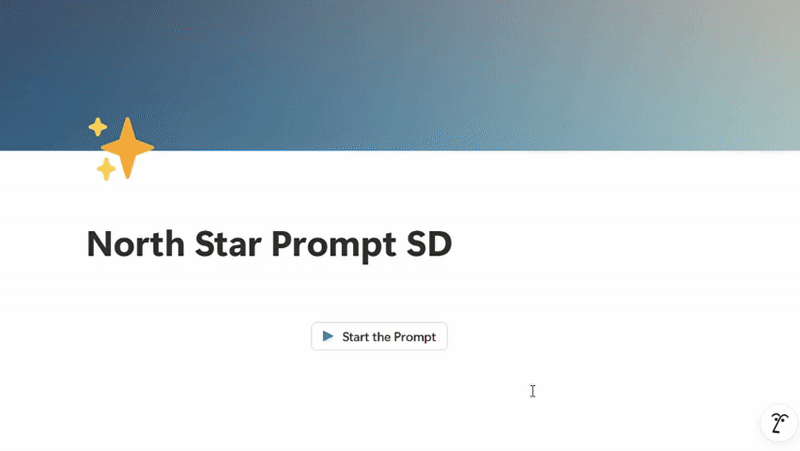
💙 Unlimited Direct Support from me, Simon D,
Reach a sticking point? Want to know how to apply the method given a specific scenario or context? Get answers to your questions directly from me (not AI).
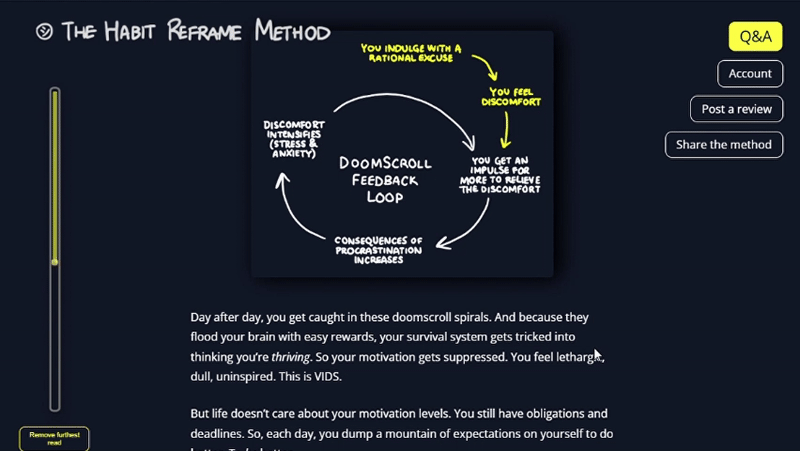
⚡Bonus Methods
(Coming soon) Get access to bonus tutorials, Notion templates and webapps. Use the Logarithmic Goal-Setting method to achieve a big goal, or the PomStack Method to chip away at your various tasks and responsibilities.
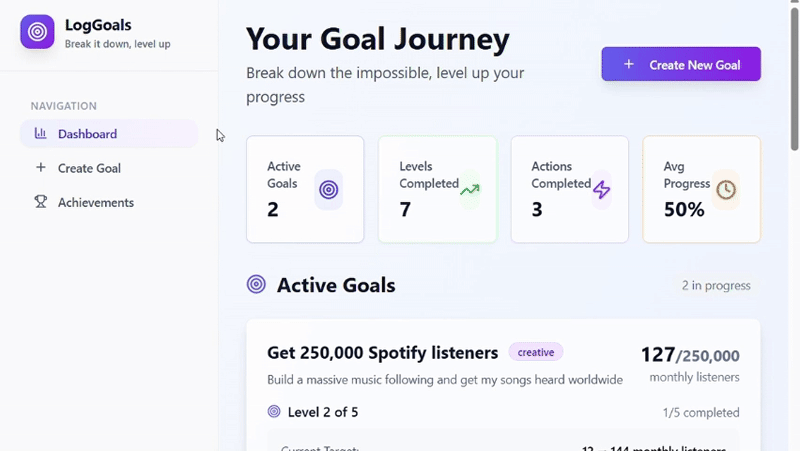
Simple and risk-free pricing
7-Day Free Trial
Get full, unrestricted access to everything for free.
No watered-down preview. No "upgrade to unlock." Just you, the full method, and 7 days to see if this works for you.
First payment = permanent access
I too hate that everything’s a subscription now. So I built this differently. The monthly plan lets me offer a free trial (Stripe’s rules, not mine), but that first payment? It gives you full ownership.
Stay subscribed for as long as you want to support this mission, and what it can do for others. Cancel anytime after. Keep access to the method and perks.
$0
For 7 days
Then $29/month • Permanent access after first payment • Cancel in a few clicks
Full access to the complete Habit Reframe Method webbook
Implementation workbook
Direct support from Simon
Regular updates and expansions
Bonus methods and frameworks (coming soon)
What Your Life Can Look Like
(Sooner Than You Think)
Imagine, for a second, living your best life.
That's what I want for you. That's what you deserve.
That's completely within your reach.
Still Not Sure?
Totally fair. Let’s clear up a few things.
“What if I’ve already tried everything?”
Then you’re exactly who this is for.This isn’t another “wake up earlier” routine or habit tracker app. This method was built for people who’ve been through all that—and still find themselves stuck.If you’re tired of motivation hacks that don’t stick, or advice that only works for people who are already in motion… This is your reset button.
“What if I fall behind or can’t keep up?”
There’s nothing to “keep up” with.This isn’t a cohort or course you need to race through before the content disappears. There are no live deadlines, no daily tasks, no dread-inducing check-ins.
You can go at your own pace, implementing the method on your terms.And remember: once you make your first payment, you’ve got permanent access.
“Do I really need to pay for yet another self-help thing?”
Only if it’s going to actually help.This isn’t about collecting more information. This is about finally getting positive momentum in your life.The trial is free. The first payment gives you lifetime access. The cost is low. The potential upside? Huge.And worst case? You cancel in a few clicks and go on your way, no charge. No pressure. Just a real chance to finally get unstuck.
“What if I get stuck?”
When it comes to following a self-improvement thing, it's rarely a question of if you'll get stuck. It's more about when, and how fast you can get unstuck.And that's what I'm there for—there's literally a big Q&A button for you to take full advantage of. Whatever issue or sticking point you've come to, I've either gone through it myself... or I've helped someone else through it.Bottom line is that life can get really messy. There is no "one-size-fits-all" miracle method—anyone promising that is a charlatan. There's just steady yet adapting progress when things are going well, and rapid and effective support/troubleshooting when they're not. This method packs both.
You Don't Need to Hustle Harder.
You Just Need a New Approach.
You've tried pushing through.You've tried shaming yourself into action.You've tried every trick that works for "motivated" people who aren't stuck in the same loops you are.
Now it's time to try something that's actually built for you.
If it works, amazing. If not, cancel in seconds. No charge. No regrets.
Got Questions? Not sure if this is the right fit for you?
Feel free to reach out. I read every message and I’m happy to give you an honest answer—no sales pitch, no pressure.📩 You can email me directly at: simon@simond.me (Or reply to any email I’ve sent if you’re already on my Substack).I want this to actually help you. If it’s not the right thing right now, I’ll tell you.Be well and thanks for reading,- Simon D. ㋛
© Habit Reframe 2025
